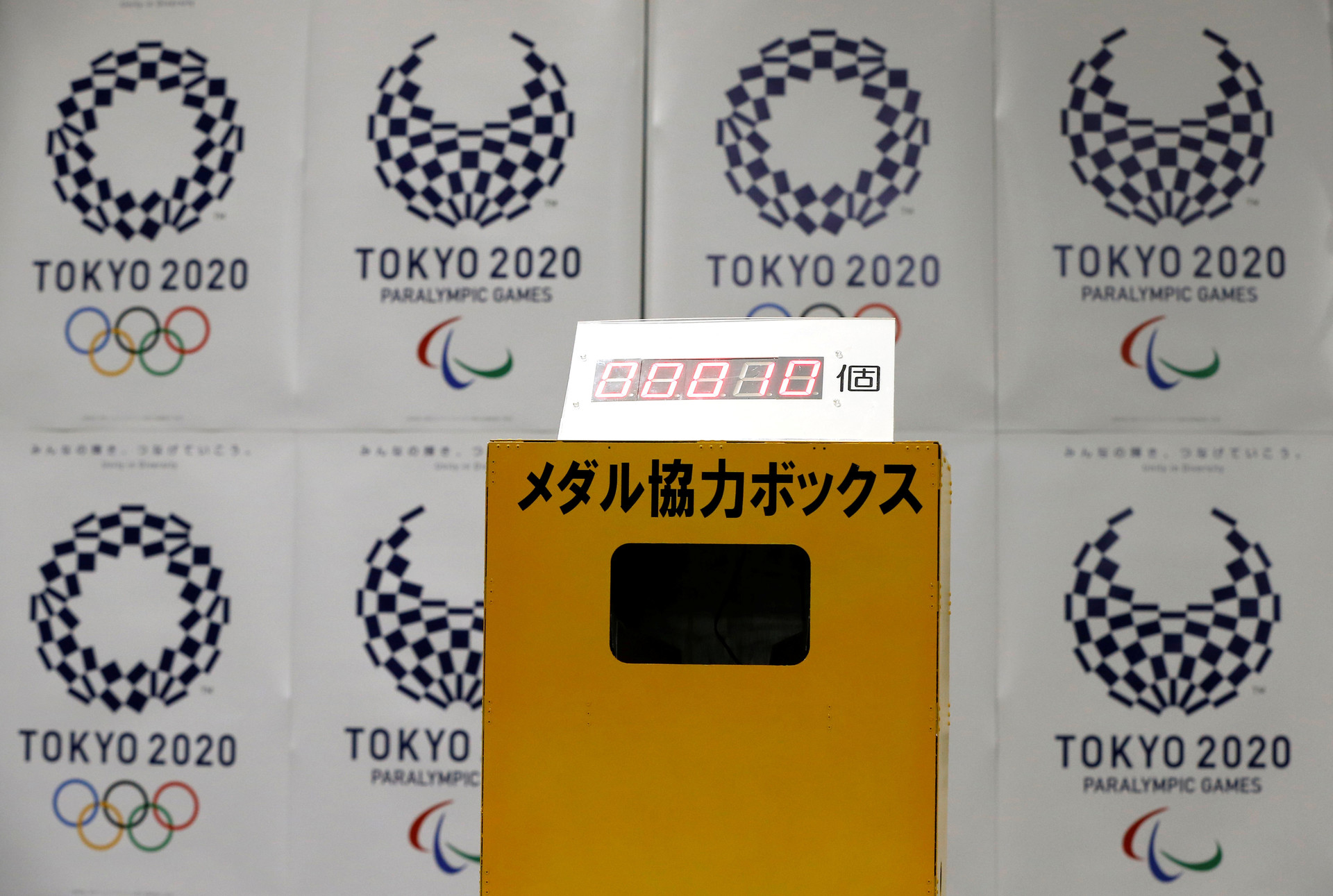Until the Summer Olympic and Paralympic Games of 2020, there are more than a year left, and they already deserve the title of not only the most advanced, but also environmentally friendly competitions in the history of sports. The organizers announced the successful completion of the project for the production of medals of all virtues from recycled metals.
The campaign, sponsored by the Ministry of the Environment of Japan, the authorities of the Municipality of Tokyo and environmental protection organizations, was launched in April 2017. Its main part consisted in collecting small electric devices - smartphones, laptops and cameras.
- A box for collecting old mobile phones, elements of which will be recycled and will be used to make Olympics awards
- Reuters
- © Issei Kato
Anyone could leave the old equipment in special boxes installed in shopping centers across the country. Then, elements containing valuable metals were extracted from the gadgets. After processing, they will go to making awards.
In accordance with the requirements of the International Olympic Committee (IOC), the weight of the Olympic medal should be from 500 to 800 g, and the diameter should not exceed 120 mm. According to estimates of the organizers of the action, about 7 tons of metals are required for the manufacture of about 5 thousand awards - more than 30 kg of gold, 4100 kg of silver and 2700 kg of bronze.
One of the project’s slogans is “Let's create Olympic and Paralympic medals together!” Most Japanese were happy to support the initiative, and by the middle of 2018 the required amount of bronze had been received. By October, the companies dealing with precious metals had 93.7% of gold and 85.4% of silver extracted from more than 5 million devices. By November last year, the total mass of devices that the participants of the action passed for processing amounted to more than 46 thousand tons.
“I am very pleased that my old smartphone will become a medal of the Olympic Games,” one of the participants admitted.
In addition to ordinary citizens and guests of Japan, the project was joined by local authorities, as well as large corporations. They not only helped in the collection of equipment, but also conducted advertising campaigns aimed at popularizing the project. Students of technical universities had the opportunity to attend lectures, describing in detail all the stages of manufacturing medals from old electronic devices.
In addition, famous athletes not only from Japan, but from around the world, including the 2017 world swimming champion, Briton Benjamin Proud, as well as the silver medalists of the 2016 Paralympic Games Jeff Butler and Ernie Chan, took part in the action.
“It seems to me that it is very important that the dreams and hopes of the people of Japan will form the basis of these medals. I, in turn, will do everything possible to achieve my goals at the Tokyo Olympics, ”said Olympic freestyle wrestling champion Eri Tohsaka.
For the first time in history, rewards will be completely remelted from materials already used. For comparison, the silver and bronze medals of the 2016 Summer Olympics in Rio de Janeiro were 30% recycled.
The design of the Tokyo 2020 awards will be officially presented at the end of the year.
The Olympic Games traditionally cause great harm to the ecology of the region in which they are held. Japanese authorities are doing everything possible to minimize the threat from the competition of this magnitude. In addition to manufacturing rewards from recycled metals, several projects were launched at once aimed at protecting the environment.
Thus, most of the stadiums and training bases will be located in close proximity to the Olympic Village, which will reduce the use of vehicles. Renewable sources of energy will be used everywhere.
The next stage of landscaping in Tokyo and its environs will be timed to the Olympic Games. The total area of natural areas of the city will be about 1 thousand hectares. They will connect the center of the capital with the most significant areas, as well as sports facilities.
Particular attention is paid to the materials from which all the products necessary for the organization of competitions are made. They should not only be harmful to the environment, but also be able to be reused or recycled.
In addition, all the participants of the Olympiad, from honored guests and the athletes themselves and ending with the numerous guests of the Japanese capital, will be able to take part in training programs and actions promoting environmental respect.

